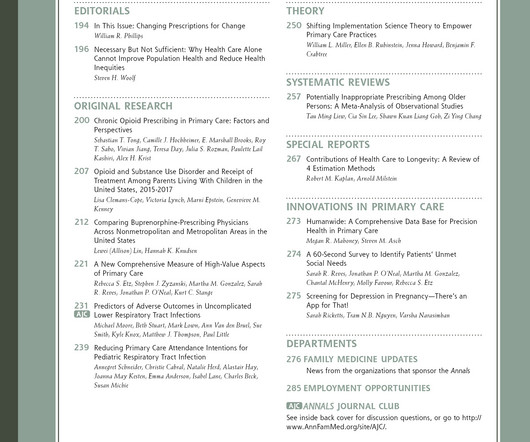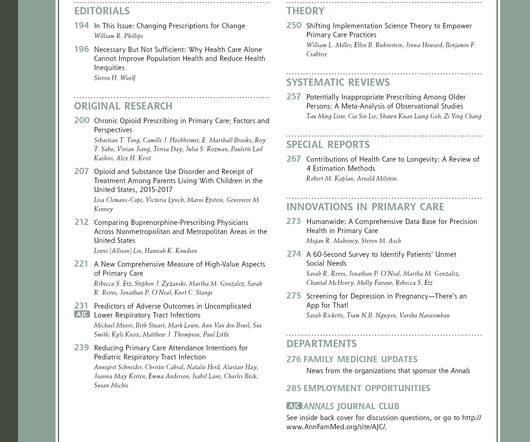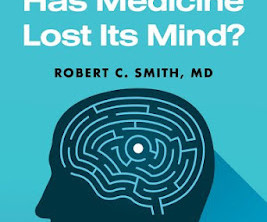Behavioral Health Provider Perspectives on the Integration of Behavioral Health into Primary Care [Behavioral, psychosocial, and mental illness]
Annals of Family Medicine
NOVEMBER 20, 2024
Context: Integrated Behavioral Health (IBH) is a model in which medical and behavioral health providers work together to provide whole person care, usually in primary care settings. Despite success in some community health centers and Federally Qualified Health Centers, IBH is not widely implemented in other settings.






































Let's personalize your content